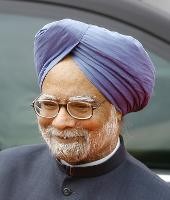NEW DELHI -- The Iran-Pakistan-India (IPI) gas pipeline -- a proposed $7.5 billion, 2,700-kilometer pipeline linking Iran's abundant natural gas reserves to energy-hungry Pakistan and India -- has been under consideration for years. But despite both India's and Pakistan's desperate need for energy sources, progress on the project has been hampered so far by strategic calculations, mutual suspicions and disagreements on pricing and tariffs. Indications, however, are that the Iran-Pakistan stretch of the pipeline may take off soon. And with the U.S.-India nuclear agreement now concluded, India might be giving it more serious consideration, too. Officials in India's foreign ministry say that the culmination of the U.S.-India nuclear agreement may lead to a more determined push for the pipeline by New Delhi in order to demonstrate an independent and balanced foreign policy, unencumbered by the dictates of America. Washington has been opposed to IPI, which undermines its efforts to isolate Iran as a means of pressuring Tehran to abandon its uranium enrichment program. What's more, both America and China have been uncomfortable with the idea of Iran, Pakistan and India linked by an interdependent energy grid.
Nuclear Deal Done, India Gives IPI Pipeline a Second Look

